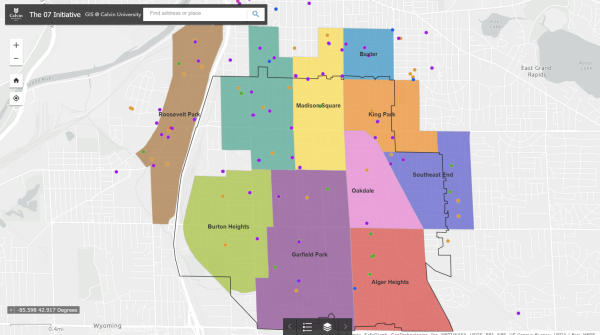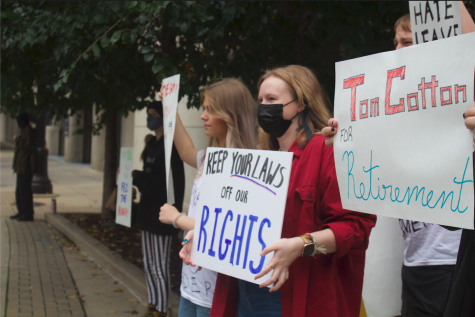Grand Rapids resettles first Syrian refugee family
By late 2014, nearly 9.5 million Syrians, 40 percent of the country’s population, had been displaced from their homes by ongoing violence and conflict in the region.
“It’s one of the toughest humanitarian challenges of our generation,” said Chris Cavanaugh, program manager for Lutheran Social Services (LSS), a refugee resettlement agency in Grand Rapids. “The country is still in chaos. There’s nowhere for them to go.”
President Obama has spoken out in support of accepting Syrian refugees into the United States, and several families have already begun to arrive, including one family who LSS resettled in Grand Rapids last week.
Refugees are only resettled in host countries such as the United States if neither returning to their home country nor staying in the neighboring country where they fled are viable options.
Most Syrians have fled to neighboring Iraq, Lebanon or Jordan — countries that face their own violent conflicts or lack the resources to resettle the millions of arriving widows and orphans. The Syrian refugee camp in Jordan has swelled to a size that, if counted, would become Jordan’s fifth-largest city.
“Their situations overseas are tragic and dire,” said Cavanaugh. “There are not enough resources. The neighboring countries are so overwhelmed.”
After a screening process that can take a year or more, the first few dozen Syrian refugees have begun to arrive in the United States. LSS estimates that fewer than 2,000 will be resettled in this coming year — far fewer than refugees from Iraq, of whom over 19,000 were resettled this year.
Michigan resettles more refugees than any other state besides Texas and California. LSS and Bethany Christian Services, both based in Grand Rapids, resettle between 600 and 700 refugees in Grand Rapids per year — most from Iraq, Burma, Bhutan and the Democratic Republic of Congo.
Over the last few years, the demographics of these refugees have been shifting. “My prediction is that [Syrians] will be a big group for the U.S.,” said Cavanaugh. “The conflict is ongoing there and there aren’t ongoing solutions for staying in the camps.”
Syrian refugees join a rich Arab culture in the United States. Nearby, Detroit and Dearborn host the largest Arab population outside of the Middle East.
However, though Syrians have been immigrating to the United States since Ellis Island, these new arrivals may face more specific challenges. Unlike other refugee groups who have waited in camps for decades, Syrian refugees arrive in the United States fresh from the trauma of a country upended by war and violence.
“We’re still trying to learn those differences,” Cavanaugh said. “So far we see a lot of similarities to the Iraqi group. With the Iraqis and the Syrians we’re going to see a lot of PTSD and people suffering pretty intensely from the trauma they experienced.”
Cavanaugh wants to encourage anyone interested in refugee issues to connect with people here in Grand Rapids.
“It’s most important to have a personal experience with a refugee here,” Cavanaugh said. “Something as simple as giving a little bit of time to someone who’s new here. Money or resources are not nearly as important as being a friendly face.”
Neither LSS nor Bethany Christian Services have any other Syrian cases currently assigned to them; however, both are making preparations in anticipation of the number soaring over the next few years.
On March 11, LSS, Bethany Christian Services, West Michigan Refugee Education and Cultural Center, and Kent Intermediate School District will present a symposium on the resettlement of Syrian refugees. The event is open to anyone who wants to learn more about supporting Syrian refugees in Grand Rapids.








